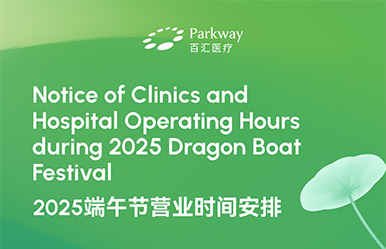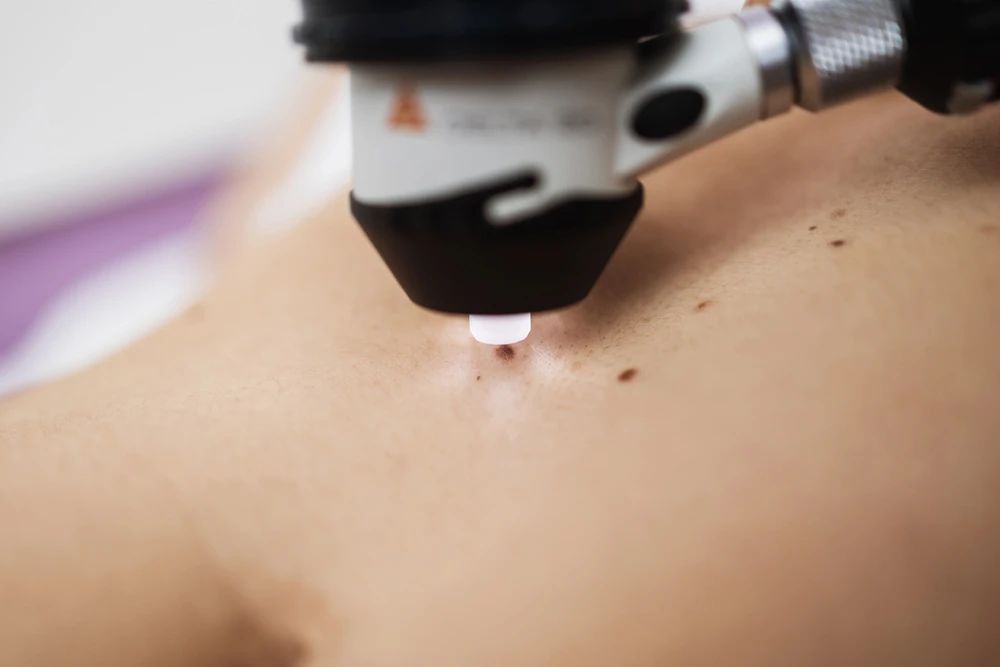Why Do Women Suffer from Bloating and Constipation?
2022-11-24
PARKWAY 百汇医疗 Bloating and constipation may be symptoms of irritable bowel syndrome, a common gut disorder among women. A healthy gut is an important part of a woman’s overall health. While we often equate women’s health with gynecology and obstetrics, there are other areas of importance, of which gastroenterology is one of them. Always speak to a gastroenterologist if you have concerns about your digestive health. There are some gut disorders which are more common in women. These range from autoimmune diseases of the liver to functional and neuro-motility disorders of the gut, such as irritable bowel syndrome (IBS) and bowel disorders. Many women experience alterations in their bowel habits and abdominal symptoms at various points in their monthly menstrual cycle. Typically, they are bloated and constipated pre-menstrual, and have looser stools during their menses. This unto itself is not abnormal and is a result of hormonal fluctuation. However, in women who suffer from IBS, these symptoms and bowel changes can be much more severe. IBS is a condition where there is abdominal pain and/or discomfort which is associated with a change in the frequency, form or nature of stool. Unlike gastroenteritis, where a patient falls ill and recovers quickly, IBS is a chronic condition that can last for years and longer. There are many factors causing IBS, including: Stress Genetics Previous gut infection An imbalance of the gut microbiota An over-sensitivity of the nerves in the gut Diet, especially relating to a group of foods called FODMAPs There is no single cause, and some or all of these factors interact together to result in the symptoms of IBS. There is no single test for IBS, and the diagnosis is made by your doctor, based on symptoms. Sometimes, endoscopy, scans or blood tests may be necessary to exclude other conditions. Specific tests may sometimes be needed to confirm a specific cause, for example, breath testing, to check for bacterial overgrowth in the intestines, or to test for what foods the patient is intolerant to. Treatment will depend on the severity and often include the use of medication and approaches to address and correct the underlying factors. These can range from lifestyle changes to help control stress and regulating the diet, to medication to control the symptoms and reduce the sensitivity of the nerve endings. Probiotics are also useful in restoring the balance of microflora in the gut and have been shown to improve symptoms of abdominal pain and bloating in IBS patients. Studies have also shown that women tend to have a slightly slower colon transit time than men, resulting in a higher chance of developing constipation. Many women believe that constipation refers to a decreased frequency of defecation, but it can also present as hard stools and having to strain to pass stool. Whilst in most cases constipation can be addressed by dietary changes and drinking more water, there are cases when further intervention is necessary. These may involve the need for endoscopy or scans to exclude structural lesions or tests to determine the rate of transit in the colon. Treatment may involve the use of laxatives, or some of the newer medications, to speed up the rate of transit of digested food in the colon. Disorders of defecation are also markedly more common in women, such as dys-synergic defaecation or faecal incontinence. Passing stool requires coordination of the muscles in the abdomen and pelvic floor, so that stool can be easily squeezed out of the colon, almost like how toothpaste is gently squeezed out of a tube. Dys-synergic defaecation occurs when this coordination is disrupted due to weakness of the pelvic floor muscles or a disruption of the coordination. Faecal incontinence, on the other hand, is an inability to control the bowels and stool may leak out. This is common in women who have had a difficult vaginal delivery, with damage to the sphincters (rings of muscles that constrict to close an opening in the body) during childbirth and delivery. Tests such as special pressure testing, called anorectal manometry, and scans, will help determine this condition. It is best diagnosed and treated by your gastroenterologist working together with your gynaecologist. Finally, it must also be recognised that women, like men, can also develop cancers of the gastrointestinal tract. These include stomach, liver, pancreas, gall bladder, bile duct and colon tumours. Prominent among these is colorectal cancer, which is the 2nd most common cancer in women after breast cancer. Like breast and cervical cancer, colon cancer is preventable through early detection by screening. Screening involves testing the stool for the presence of occult blood, or performing a colonoscopy using a video endoscope. Stool occult blood testing is painless and simple, but it’s not very sensitive, so the testing needs to be done annually. A colonoscopy is more invasive, but it allows detection of small tumours and polyps that may be missed by stool occult blood testing. Polyps, the precursor to colon cancer, can also be removed during endoscopy without the need for surgery. Screening by colonoscopy needs to be performed only once every 10 years, but if there is a family history of colorectal cancer or a personal history of polyps, then it means the woman has a higher risk and the colonoscopy should be performed once every 5 years. In summary, these are some of the gut disorders that are faced more commonly by women than by men, but if addressed promptly by accurate diagnosis and given appropriate treatment, they can prevent unnecessary suffering and afford every woman a good quality of life. If you’re concerned about a digestive condition, speak to a specialist. Parkway China Parkway is part of IHH Healthcare, one of the largest healthcare providers in the world by market capitalization. Its operates 80 hospitals with more than 15,000 beds in 10 countries. Parkway first arrived in China in 2004. In 2006, Parkway opened its first medical center in Shanghai, bringing world-renowned quality healthcare to China. Through the acquisition of World Link Group in 2007, Parkway becomes Shanghai's largest foreign-owned medical network. Parkway China is a leading international healthcare provider. With a team of nearly 100 internationally trained physicians, we now operate 8 medical facilities conveniently located in Shanghai, Chengdu and Hong Kong offering more than 40 specialties. We work closely with the best local hospitals with which we share our knowledge and expertise to ensure the best services possible to our patients. We have established direct billing services with over 50 insurance companies. We provide both outpatient and inpatient care for adults and children. Our services include: Family Medicine, Adult Medicine, Pediatrics, Gynecology, Dentistry, Cardiology, ENT, Gastroenterology, Ophthalmology, Dermatology, General Surgery, Orthopedics & Sports Medicine, Urology, Beauty & Skin Care, Psychiatry, Traditional Chinese Medicine & Acupuncture, Osteopathy, etc.































